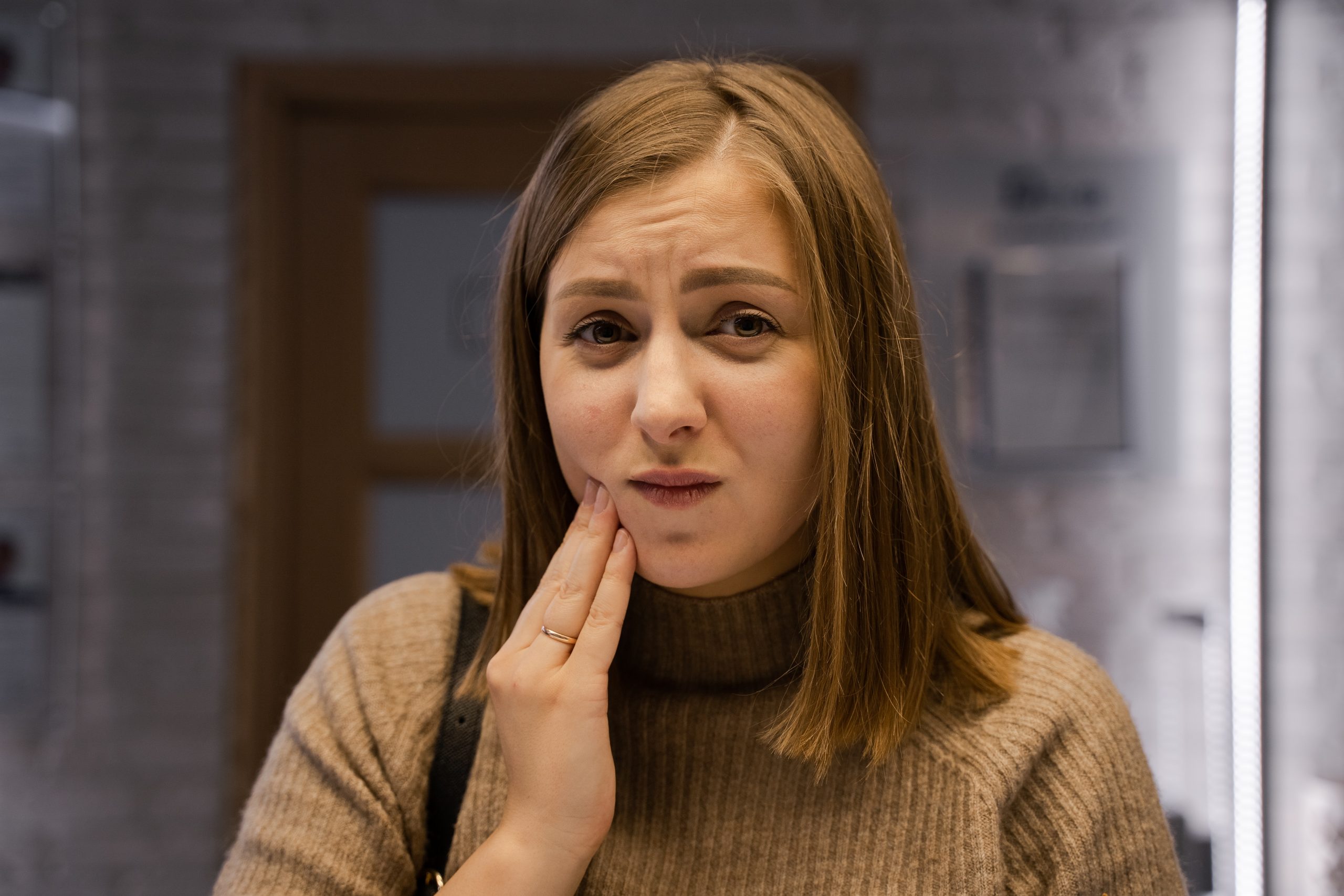Have you ever been eating your favorite dessert or drinking some cold water and felt some oral discomfort? Typically, this sensitivity occurs because of enamel damage. This can be gradual or immediate depending on the circumstances.
If you’re suffering from oral sensitivity, it’s important to know the potential causes as well as how to find relief. Here’s an in-depth guide to help you understand tooth sensitivity.
What is Tooth Sensitivity?
Dentin hypersensitivity, which is commonly referred to as tooth sensitivity, is the oral discomfort responsible for pain. Over time, general wear and tear combined with daily habits wither down your enamel, which is the outer layer of your teeth.
When your enamel is cracked or begins to erode, sugar and acid can reach your tooth’s pulp, which is extremely painful. Tooth sensitivity can be a minor or chronic condition based on the severity of the damage.
What Causes Tooth Sensitivity?
Tooth sensitivity has a myriad of causes. For one, it can be caused by poor oral hygiene. If you don’t regularly brush and floss your teeth, lingering food becomes plaque and subsequently turns into tartar. Contrarily, brushing your teeth and gums too hard can also lead to sensitivity.
Hard toothbrushes combined with aggressive brushing can bruise your gums and even cause bleeding. These open wounds can be sensitive to acidic foods as well as extreme temperatures.
In severe cases, sensitivity is a sign of a cavity. Cavities start as small holes in your teeth. If left unchecked, they grow and eventually expose the pulp. Since the pulp is the most sensitive portion of the entire tooth, eating and drinking will trigger a painful response.
Common foods that trigger sensitivity include:
- Carbonated beverages (soda, sparkling water, etc.)
- Citrus fruits (orange, lemon, lime, grapefruit)
- Apples
- Vinaigrette
- Berries (strawberry, blueberry, raspberry, etc.)
- Tomatoes
- Pineapples
- Alcohol
- Coffee
- Sugary foods (candy, cake, etc.)
Regular consumption combined with poor oral hygiene lead to even quicker tooth erosion. Other seemingly harmless habits that wear down enamel are:
- Tooth grinding
- Excessive alcohol and tobacco use
- Regular use of bleaching kits
Symptoms of Teeth Sensitivity
The symptoms of your teeth sensitivity vary based on the severity of the damage. Your symptoms correspond with how great the infection is. Larger infections produce more symptoms than minor ones. Also, you’ll typically have more symptoms with chronic tooth sensitivity. The most common symptoms associated with tooth sensitivity include:
- Halitosis, also known as bad breath
- Receding gums
- Gum swelling and redness
- Pus or abnormal discharge from the gums
- Different taste in food
- Pain
- Difficulty chewing
- Popping noises when you open or close your mouth
- Unexplained weight loss
In some cases, tooth sensitivity is a symptom of an underlying health condition. Be sure to look into these symptoms immediately before they become severe.
Why Are My Teeth Sensitive to Sugar?
If you eat a lot of sugar, your mouth becomes more acidic. The longer it sits, the more damage sugar does to your oral pH balance. In some cases, your genetic makeup plays a role in your sugar sensitivity and cravings. If you feel yourself overindulging in sugar, seek professional help.
Sweet Tooth Pain Relief
Luckily, you have options when it comes to sweet tooth pain relief. You can take a number of approaches based on how painful your condition is. In mild cases of sweet tooth pain, you can use natural remedies to feel better. However, unbearable pain can be a serious condition and you should seek dental care.
How to Treat and Prevent Teeth Sensitivity
Prevention is the ideal action against tooth sensitivity. Preventative care includes:
- Gently brushing with a soft-bristle toothbrush twice daily
- Use alcohol-free mouthwash
- Floss daily
- Use toothpaste for sensitive teeth
- Consume less sugar and acidic foods
- Reduce stress and tooth grinding
In severe cases, you’ll need professional intervention. Anything from cavity fillings to gum grafting will improve your sensitivity and overall oral health.
Don’t let your tooth sensitivity impact your quality of life. If your sensitivity symptoms become unbearable, immediately contact your dentist for treatment options.


